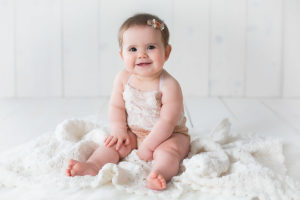Cloth diapers are on the rise, but there are a few things you should know about how to clean them properly.
To make sure your diapers last longer and don’t cause any allergies, it is important to learn proper cleaning techniques.
Here’s a list of the most effective ways!
Effective Ways to Clean Cloth Diapers:
- Cleaning with water alone will not remove soiled diaper lumps or stains that have been set in for too long. You’ll need an essential oil-based cleaner along with a soft cloth (dish towel) and warm water to wipe up smears before they stain permanently.
- If the cloth is too “rough,” or if you have used anything abrasive, your diapers will most likely require a wash with a stain remover to remove all soiled areas.
- Cotton swabs don’t work very well to clean cotton when it’s still natural.
- You’ll need to either use cloth wipes (for extra absorbency) or disposable wipes (which can be purchased at most stores).
- The best way to clean cloth diapers is with soap and water or a solution of detergent and water. This will get rid of all icky odors, and then you can wash the diapers in the laundry with your regular detergent with no harsh chemicals added. You can also do the same in the machine with your other laundry (like towels, sheets, and bedding).
- Soap-free detergents are not as effective or safe. Using soap without any detergent will cause a residue to build upon your diapers, and it’s very difficult to remove. Some people use baby powder to get the smell out of their clothes, but use caution since baby powder may contain talc that can irritate some babies’ skin. You will need to use cloth wipes if you don’t mind putting some extra work into keeping your nursery clean.
- When washing cloth diapers in the machine with any detergent, be sure to use hot water only used for laundry alongside regular wash loads. Hot water helps dissolve stains and set in icky odors. Coldwater may not clean your diapers as thoroughly or effectively and will cause them to wear out faster.
- Liners are not necessary, but if you do use one, be sure it’s natural (such as a cut-up old soft towel).
- Microfiber cloths are also a good choice; these also reduce the need for detergent. Just don’t use anything that isn’t natural since it may irritate your baby’s skin or cause an allergic reaction.
- Every load of laundry will remove more stains than the last cycle from your diapers.
- You can choose to remove stains with a wash, water method (with detergent), or bleach method. You will want to use at least 1/4 cup of bleach per load (as opposed to using detergents) since detergent can weaken the fibers of your diapers and cause them to break more easily over time. Be sure to test your diapers with a shirt or swatch first before doing a full load.
- Always be sure to test any diaper cleaner on a small bit of cloth before using it on all your diapers. Make sure the cleaner doesn’t have an odor that is going to irritate your baby’s skin, as well as that it doesn’t make the fabric too hot and burn his sensitive bum. If you don’t like the way the cleaner works, don’t buy it!
- Be ready to get rid of runny poop stains before they set in. You’ll need to wash your cloth diapers with detergent and warm water as soon as possible (especially if you use disposables). Never wait for more than overnight to wash soiled cloth diapers. Wash any stained diapers immediately and hand-dry without using any fabric softener (powder or liquid) or dryer sheets.
Is Washing Cloth Diapers Sanitary?
yes, it is much more sanitary than disposables. Disposable diapers can’t exactly be washed, you’re supposed to throw the entire contaminated diaper away (if you have a high-quality diaper that is not overwhelmed with heavy metals like Pampers or Huggies).
Disposable diapers also hold more bacteria, because the wetness never really goes away.
Final Thoughts!
I hope this article helps you understand the crucial things that you need to know when cleaning cloth diapers, have some more suggestions?
Share them down below!

As a mother of four very energetic children, Emilia knows how chaotic motherhood can be. She’s learned a lot of lessons along the journey so far and loves sharing the tips & tricks she’s picked up over the years with anybody else on the same life path.

